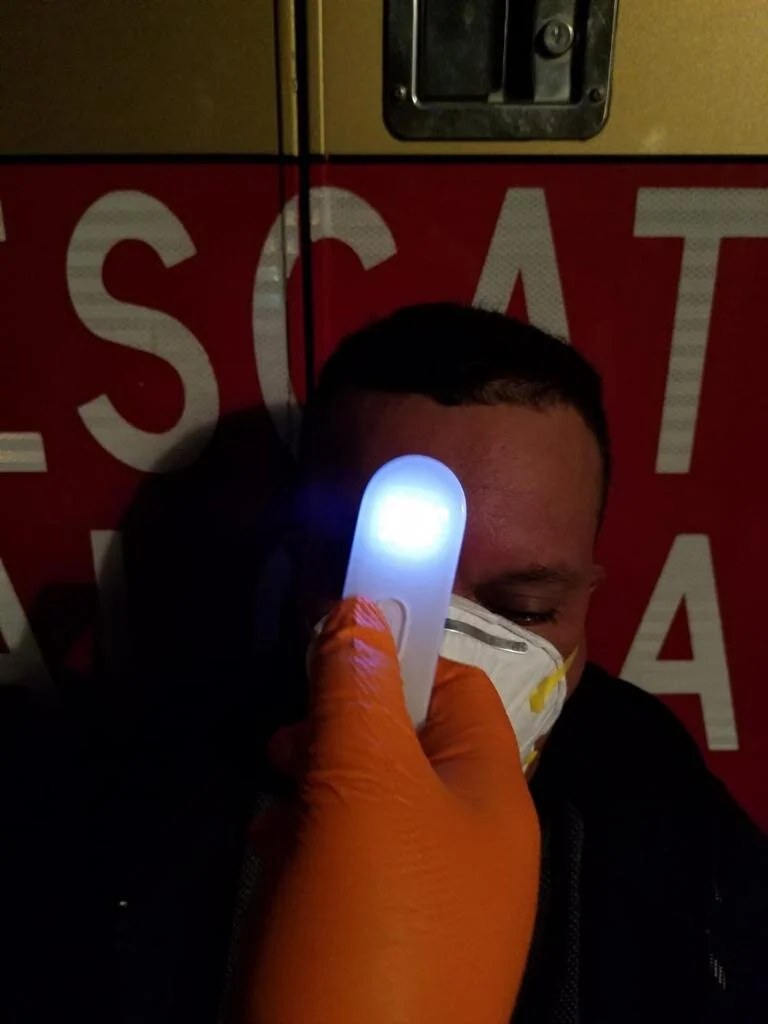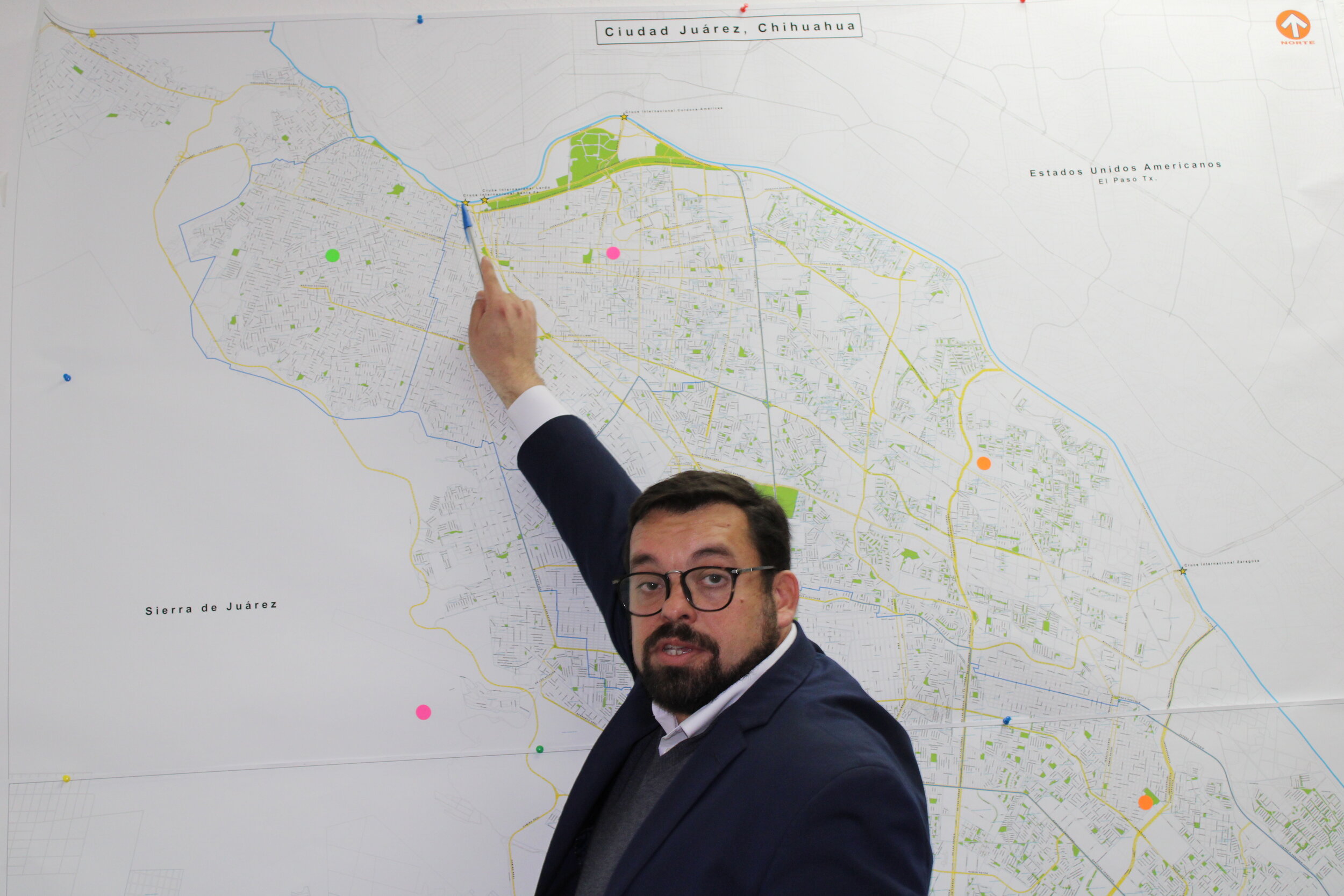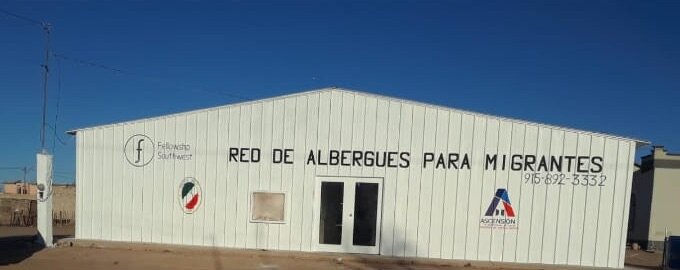Stories to inspire, challenge and educate.
Fellowship Southwest responds to the desperate cries of thousands of Venezuelans in Cuidad Juarez
In Ciudad Juarez, on the banks of the Rio Grande River across El Paso, Texas, over 1,200 Venezuelan migrants are living in makeshift shelters, because of the Department of Homeland Security’s decision to authorize the rapid expulsion of Venezuelan migrants at the U.S.-Mexico border.
An MPP that might actually protect migrants
Mexico is in the process of implementing its own migrant protection protocol (MPP). But do not worry. This new plan has nothing in common with the recently relaunched U.S. policy, better known as “Remain in Mexico,” which does not actually protect migrants at all.
On the contrary, this MPP is an agreement between various churches, denominations, civil organizations and three levels of Mexican government to holistically address the needs of migrants in the state of Sonora, Mexico, across the border from Arizona.
The Good Fight
Rosalío Sosa sat at ringside when boxing legends Mike Tyson and Evander Holyfield battled for the world heavyweight title in 1997. As millions watched the sluggers, Sosa waged his own fight, struggling with God’s call to ministry.
Why all the fuss about the United States’ “Remain in Mexico” immigration policy?
How would you feel if someone you trust harmed you as badly or worse than someone who beat you? On an international level, that’s what the U.S. immigration policy known as Migrant Protection Protocols—or MPP, or “Remain in Mexico”—is all about.
Last week, the U.S. Supreme Court declined to block a district court decision ordering the Department of Homeland Security to reimplement MPP. Many faith-based and humanitarian organizations that work with migrants, including Fellowship Southwest, swiftly opposed the high court’s decision.
Migrante que cae del muro fronterizo recibe cuidado y amor cristiano
Ana María Zambrano García, de 32 años, viajó miles de millas desde su natal Ecuador para terminar incapacitada en un refugio para migrantes en la remota aldea desértica de Palomas, México, luego de caer desde lo más alto del muro fronterizo entre Estados Unidos y México. En su intento por pisar suelo estadounidense, Zambrano se rompió las piernas, la columna vertebral, y ahora está confinada a la cama de un refugio.
Ana María Zambrano’s story in Palomas
Ana María Zambrano García, 32, traveled thousands of miles from her native Ecuador to end up incapacitated in a migrant shelter in the remote desert village of Palomas, Mexico, after falling from the top of the US-Mexico border wall. In her attempt to set foot on U.S. soil, Zambrano broke her legs and her spine, and is now confined to a bed in a shelter.
FSW’s partner Sosa constantly adapts to changing migrant conditions
Overcrowded shelters and constant movement of migrants from other sections of the U.S.-Mexico border are testing the limits of El Paso, Texas, and Ciudad Juárez, Chihuahua, reported Pastor Rosalío Sosa, a key member of Fellowship Southwest’s immigrant relief ministry.
Relief organizations, such as Sosa’s Red de Albergues para Migrantes (Migrant Shelter Network) also are feeling the strain, noted Sosa, pastor of Iglesia Bautista Tierra de Oro in El Paso.
With FSW’s help, immigrants build better lives—one concrete block at a time
Thanks to a clever idea and willingness to work, three Cuban immigrants are supporting themselves and their families while living in a refugee shelter supported by Fellowship Southwest in Juarez, Mexico.
Shelter Director Rosalío Sosa knows his Cuban friends well and appreciates their strong desire to work. So, when he realized a concrete fabrication machine was for sale, he saw a path to financial independence. And with Fellowship Southwest’s support, he bought the machine and moved it to Juarez.
María continues to recuperate before returning to Palomas
The heart and soul of Fellowship Southwest’s immigrant shelter in the north-central Mexican village of Palomas is nearing recovery.
María Elena Lao Rodríguez underwent high-risk surgery that spared her life in mid-August. But María, who experienced severe abdominal pain and bleeding while serving other migrants in Palomas, is expected to return to normal by the end of the month.
On the border, Sosa witnesses abuse doled out by U.S. agents
Rosalío Sosa knows how to deal with obstacles organized crime throws at his ministry to refugees on the U.S.-Mexico border. He has helped redeem many cartel members and has rescued young men from their grips.
But Sosa’s ministry—operating 14 immigrant shelters in the state of Chihuahua, Mexico—has been encountering another hurdle, this time placed by the United States government.
Sosa dispenses hope to unaccompanied minors and immigrant smugglers
God rescues people who seem beyond hope, Rosalío Sosa believes. He knows God redeems even the darkest circumstances, because he’s seen it happen.
Every day, he wakes up on the U.S.-Mexico border, a region dominated by drug cartels. Lately, he’s experienced victories in the battle against the forces of exploitation. He has seized young men from the grip of the organized crime.
“Sheriff” Sosa protects immigrants from virus
Refugees in Palomas, Mexico, are assured of getting care for possible COVID-19 infections, thanks to the attention and faithfulness of Rosalío Sosa.
Sosa is pastor of Iglesia Bautista Tierra de Oro in El Paso and director of Red de Albergues para Migrante, a network of 14 immigrant shelters in the north central Mexican state of Chihuahua.
FSW relief ministry expands to include pastors imperiled by pandemic
Sometimes, caregivers need care, and Fellowship Southwest has expanded its Immigrant Relief Ministry to support them.
Two stalwarts in FSW’s ministry to asylum seekers on the U.S.-Mexico border—Juvenal González in Tijuana and Rosalio Sosa in Juarez—recently reported an alarming result of the COVID-19 pandemic: Pastors in their local networks don’t have enough money to feed their families.
Churches are crucial to protecting immigrants, Mexican leader says
People of faith are helping provide a buffer of protection between the coronavirus and thousands of immigrants along the United States border, a government leader in north central Mexico reported.
"The best (protective) efforts have been working side-by-side with organizations of faith, specifically the evangelical churches," Enrique Valenzuela said of the government’s efforts to contain the virus and protect the population. "The merit goes out to the churches. Some of them stopped using their temples and converted them … to help social distancing during this pandemic."
Wherever the refugees are, that’s where we’ll be
An intriguing and disconcerting message popped up on my telephone screen late last week.
“I just got out from the meeting in Juarez … talking about the MPP changes,” wrote Rosalio Sosa, pastor of Iglesia Bautista Tierra de Oro in El Paso and leader of Fellowship Southwest’s efforts to minister to asylum seekers clustered across the Rio Grande in Juarez and in other parts of the state of Chihuahua.
Partners open shelter near desert border crossing
Joy and gladness radiated from the desert about 100 miles west of Juarez, Mexico, early this week.
A shelter for refugees opened in Palomas, Chihuahua—thanks to a coalition that includes the village of Palomas, the state of Chihuahua, Red de Albergues Migrantes (the Migrant Shelter Network), regional nonprofits and Fellowship Southwest.
Although Palomas is isolated and surrounded by hostile terrain, asylum seekers still flow through. They strive for passage into the United States at the border crossing on the northern edge of town.
We took a trip to Juarez and met all these lovely people on the border
The location changed, but the wonder and heartbreak remained the same this week, when Fellowship Southwest’s Immigrant Relief Ministry sponsored a tour of shelters for asylum seekers in and around Juarez, Mexico, across the Rio Grande from El Paso.
Border churches buffer winter’s bluster
The first wave of winter weather caused temperatures to plummet almost to freezing along the Mexico-U.S. border last week. But thanks to Fellowship Southwest’s friends, we were able to help our partners deliver protection from the frigid onslaught to asylum seekers across the region.
As the temperatures dropped, we began exchanging emails, texts and phone calls with pastors of partner churches, who minister to immigrants camped and otherwise sheltered along the border. When we assured them we would send money for freeze protection—such as blankets, hoodies, beanies and gloves—they went shopping for the best deals they could find on high quantities of supplies.
Renovated building provides temporary home for immigrants in Juarez
Thanks to your support, Fellowship Southwest is helping Iglesia Bautista Tierra De Oro get immigrants off the streets of Juarez, Mexico.
For several months, FSW has provided funds so that the El Paso church could rent what we thought was a single building across the Mexico-U.S. border in Juarez. Jorge Zapata, associate coordinator of CBF Texas and director of FSW’s Immigrant Relief Ministry, recently traveled to the region and toured IB Tierra De Oro’s immigrant shelters with Pastor Rosalio Sosa.
Warm wishes aren’t enough; we’re providing blankets
As winter’s frigid blast buffeted the U.S.-Mexico border this week, pastors pleaded for blankets to comfort immigrants seeking asylum in the United States.
“Very cold today; 37 degrees,” Carlos Navarro, pastor of Iglesia Bautista West Brownsville wrote in a text on Tuesday. Later, in a phone call, he said churches that provide food and shelter for refugees are desperate to supply blankets, hoodies and other warm clothes. Rosalio Sosa, pastor of Iglesia Bautista Tierra De Oro in El Paso, and Rogelio Pérez, pastor of Iglesia Bautista Capernaum in Lomito, Texas, echoed those sentiments.



















